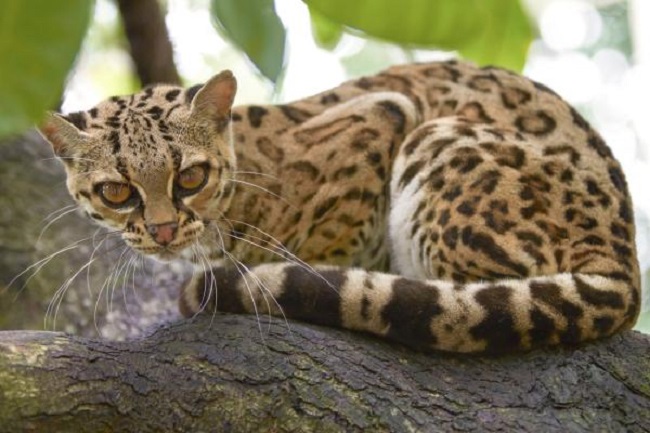Ocelots, with their striking appearance and captivating beauty, have caught the attention of many individuals who dream of owning an exotic pet.
In this comprehensive guide, we will explore the possibility of keeping an Ocelot as a pet, shedding light on the legal and ethical considerations, the challenges of their care, and alternative ways to appreciate and support the conservation of these remarkable wild cats.

Understanding Ocelots
Ocelots (Leopardus pardalis) are medium-sized wild cats native to the Americas. They are known for their distinctive coat pattern, which resembles that of a leopard, with rosettes and spots.
Read Also:
Ocelots are skilled climbers and nocturnal hunters, thriving in a variety of habitats, including rainforests, swamps, and grasslands.
Legal and Ethical Considerations
Here are some lethal and ethnic considerations of Ocelots pets:
Legal Restrictions
In most countries, keeping Ocelots as pets is strictly regulated or outright prohibited. The laws aim to protect the welfare of both the animals and the general public. It is essential to research the specific laws and regulations in your jurisdiction before considering an Ocelot as a pet.
Ethical Considerations
Ocelots are wild animals with specialized needs that are challenging to replicate in a domestic setting. Keeping them as pets can lead to significant physical and behavioral challenges for the animal and potential risks to human safety.
Supporting ethical and responsible conservation efforts is a more appropriate way to appreciate these magnificent creatures.
Challenges of Ocelot Care
Ocelots have complex care requirements that are difficult to meet in a home environment. Some of the challenges include:
Space and Enclosure
Ocelots require large, secure enclosures with plenty of space for climbing, running, and hunting. Providing an adequate living space can be impractical or impossible for most individuals.
Diet and Nutrition
Ocelots are carnivores with specific dietary needs. Replicating their natural diet can be challenging and costly. It is essential to provide a varied and nutritionally balanced diet that meets their specific requirements.
Behavioral and Enrichment Needs
Ocelots are active and intelligent animals that require mental and physical stimulation. Meeting their behavioral and enrichment needs can be demanding and may not be possible in a home environment.
Alternatives for Appreciating Ocelots
If you are fascinated by Ocelots but recognize the challenges of keeping them as pets, there are alternative ways to appreciate and support these incredible creatures:
Visit Wildlife Sanctuaries and Reserves
Many reputable wildlife sanctuaries and reserves offer opportunities to observe and learn about Ocelots in a safe and responsible environment. These facilities prioritize the welfare and conservation of the animals.
Support Conservation Efforts
Contribute to organizations and initiatives focused on the conservation of Ocelots and their natural habitats. By supporting these efforts, you can make a positive impact on the long-term survival of these incredible wild cats.
Learn About Ocelots
Take the time to educate yourself about Ocelots through books, documentaries, and educational programs. Understanding their natural behavior, habitat, and conservation status can deepen your appreciation for these animals.
Read Also:
Conclusion
While Ocelots are undeniably captivating creatures, it is important to recognize that they are wild animals best suited for their natural habitats.
The legal and ethical challenges, coupled with the specialized care requirements, make keeping them as pets impractical and often illegal.
Instead, let’s focus on supporting their conservation, appreciating them from a distance, and ensuring their long-term survival in the wild.
























